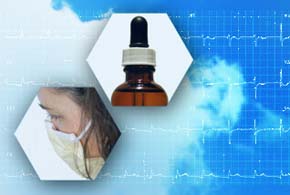The need for efficient sharing of information across locations in a synchronized way is expected to be a key driver of cloud computing in health IT.

Mobile health (mHealth), adoption of the cloud in health-care industries and regulatory environments will be the key subjects in the health IT sector in 2014 and beyond, according to research firm Frost & Sullivan’s 2013 Search for Growth survey, which involved 1835 executives in more than 40 countries worldwide. The report predicted the rise of new technologies capable of integrating medical devices into a connected platform would enhance the functionality of devices, reduce the manpower burden and minimize errors.
The need for efficient sharing of information across locations in a synchronized manner is expected to be a key driver for cloud computing in health care. The concept can be applied in a variety of ways, including data storage and data loss prevention, maintaining patient information records and authorized sharing of information.
The penetration prospects of mHealth technologies were deemed significant in the areas of wireless vital signs monitoring, location-aware telemonitoring systems and Bluetooth wireless technology-enabled health trackers.
The mHealth expansion is largely supported by mobile devices, such as mobile phones, patient monitoring devices, personal digital assistants (PDAs) and other wireless devices, and has been fueled by the unprecedented spread of mobile technologies, as well as advancements in applications to address health priorities. “In the area of regulatory environment, recent health-care reforms and policy initiatives across many countries have emphasized the importance of quality of care more than quantity,” the report noted. “In the absence of a sufficient proof of clinical benefit, reimbursements may pose a major hurdle.” In addition, the health care and life sciences industry is projected to consolidate further in this decade, with many big pharmaceutical companies seeking alternatives to the blockbuster model.
With health care increasingly geared towards a personalized medicine model, companion diagnostics will alter drug development and the commercialization process of drug candidates, with combinations of biomarkers and drugs resulting in enhanced therapeutic efficacy and safety. “Our research team has used the findings to select and prioritize the subjects that are deemed to be poised for the greatest growth,” Frost & Sullivan partner Dorman Followwill said in a statement.
“The insight has also been essential in unveiling the business outlook for pharmaceuticals, biotechnology, clinical diagnostics and medical devices, as well as to provide a global perspective on the industry’s geographical hot spots.” Remote monitoring, drug delivery market, patient and consumer engagement, health care dashboards, eHealth medical records, medical devices growth drivers and video telemedicine were among the other fast-growing areas touched on in the report.



